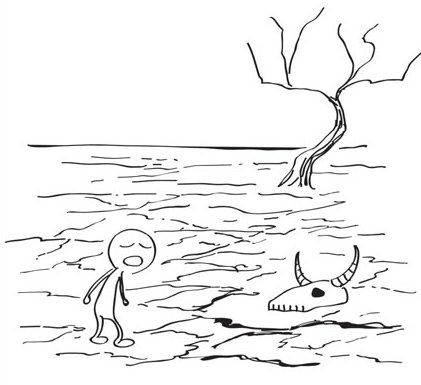Science must trump politics and greed
- By Jeffrey Sachs
 0 Comment(s)
0 Comment(s) Print
Print E-mail Shanghai Daily, July 31, 2012
E-mail Shanghai Daily, July 31, 2012
|
|
|
[By Zhou Tao/Shanghai Daily] |
For years, climate scientists have been warning the world that the heavy use of fossil fuels (coal, oil, and natural gas) threatens the world with human-induced climate change.
The rising atmospheric concentration of carbon dioxide, a byproduct of burning fossil fuels, would warm the planet and change rainfall and storm patterns and raise sea levels. Now those changes are hitting in every direction, even as powerful corporate lobbies and media propagandists like Rupert Murdoch try to deny the truth.
In recent weeks, the United States has entered its worst drought in modern times. The Midwest and the Plains states, the country's breadbasket, are baking under a massive heat wave.
Halfway around the world, Beijing has been hit by the worst rains on record, with floods killing many people. Japan is similarly facing record-breaking torrential rains. Two of Africa's impoverished drylands - the Horn of Africa in the east and the Sahel in the west - have experienced devastating droughts and famines in the past two years.
Scientists have given a name to our era, the Anthropocene, a term built on ancient Greek roots to mean "the Human-dominated epoch," a new period of earth's history in which humanity has become the cause of global-scale environmental change.
For many years, the risk of climate change was regarded as something far in the future, a risk perhaps facing our children or their children. That threat would, of course, have been reason enough to act. Yet now we understand better that climate change is also about us, today's generation.
Scientists emphasize the difference between climate and weather. The climate is the overall pattern of temperature and rainfall in a given place. The weather is the temperature and rainfall in that place at a particular time. As the old quip puts it: "Climate is what you expect; weather is what you get."
When the temperature is especially high, or rains are especially heavy or light, scientists try to assess whether the unusual conditions are the result of long-term climate change or simply reflect expected variability. So, is the current US heat wave (making this the hottest year on record), the intense Beijing flooding, or the severe Sahel drought a case of random bad weather, or merely the result of long-term, human-induced climate change?
For a long time, scientists were unsure whether a particular weather disaster could be attributed to human causes, rather than to natural variation.
In recent years, however, a new climate science of "detection and attribution" has made huge advances, both conceptually and empirically. Detection means determining whether an extreme event is part of usual weather fluctuations or a symptom of deeper, long-term change. Attribution means the ability to assign the likely causes of an event to human activity or other factors.
Several studies in the past year have shown that scientists can indeed detect long-term climate change in the rising frequency of extreme events - such as heat waves, heavy rains, severe droughts, and strong storms. By using cutting-edge climate models, scientists are not only detecting long-term climate change, but also are attributing at least some of the extreme events to human causes.
The past couple of years have brought a shocking number of extreme events all over the planet. In many cases, short-run natural factors rather than human activity played a role. Yet, even after carefully controlling for such natural year-to-year shifts, scientists are also finding that several recent disasters likely reflect human-caused climate change as well. For example, human-caused warming of the Indian Ocean probably played a role in the 2011 severe drought in the Horn of Africa, which triggered famine, conflict, and hunger, affecting millions of impoverished people.
The evidence is solid. Humanity is putting itself at increasing peril through human-induced climate change. Human well-being, even survival, will depend on scientific evidence and technological know-how triumphing over shortsighted greed, political timidity, and the continuing stream of anti-scientific corporate propaganda.
Jeffrey D. Sachs is professor of economics and Director of the Earth Institute at Columbia University. Copyright: Project Syndicate, 2012.www.project-syndicate.org. Shanghai Daily condensed the article.






